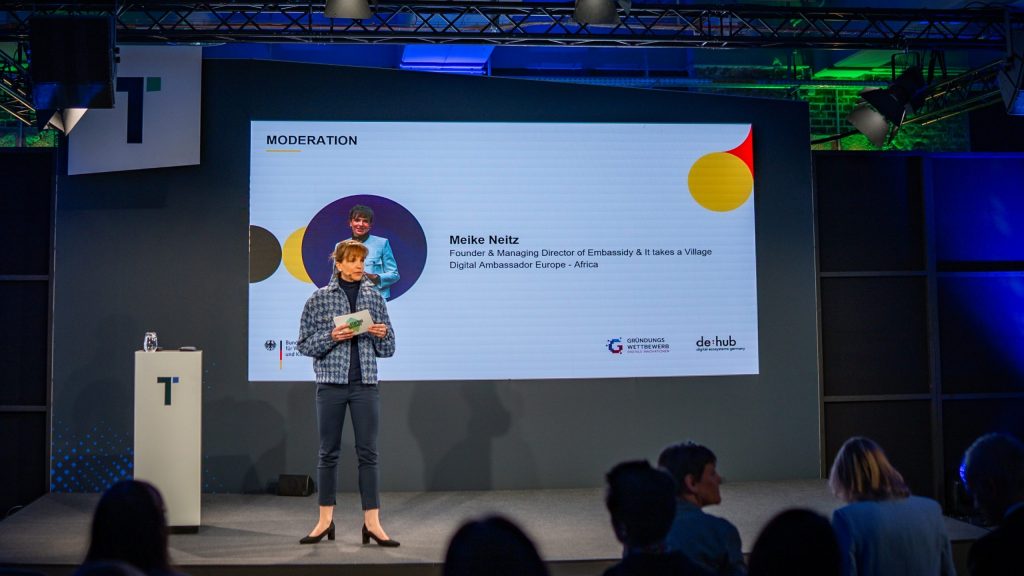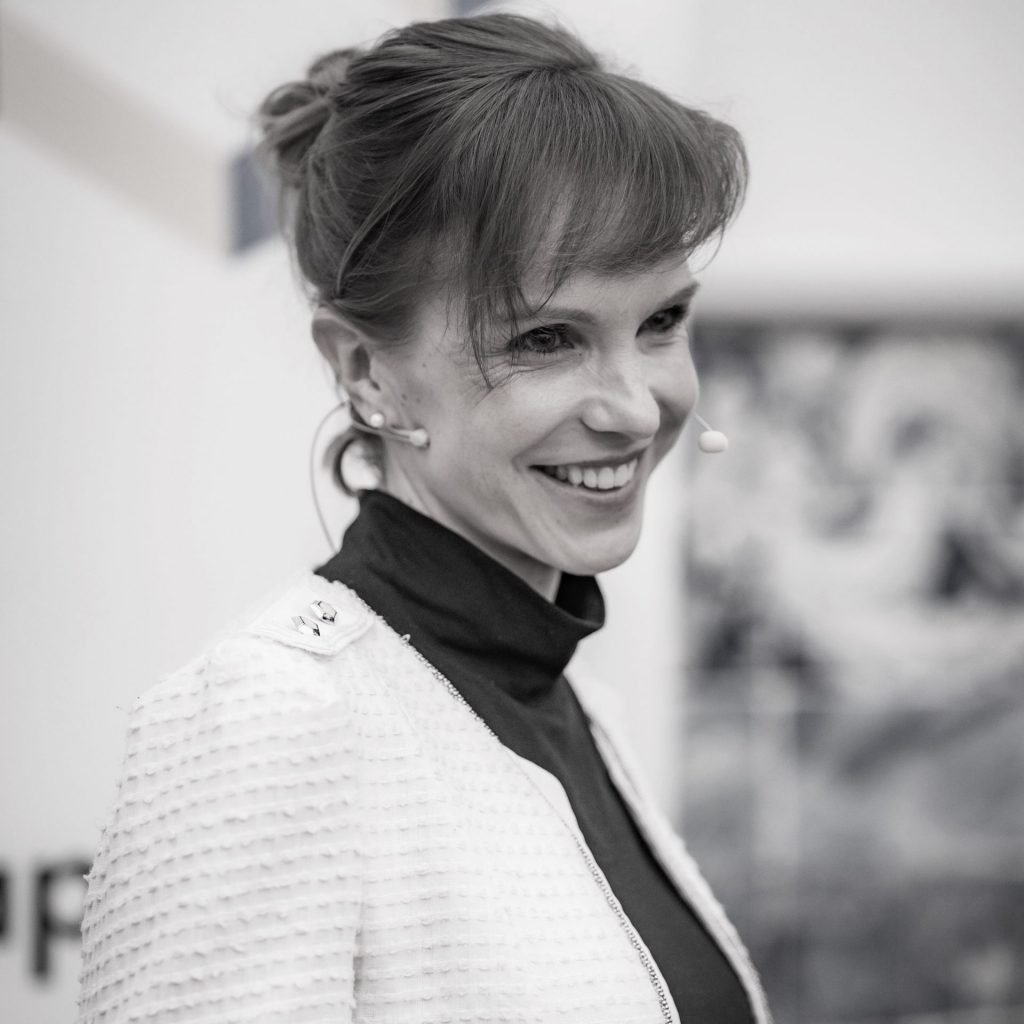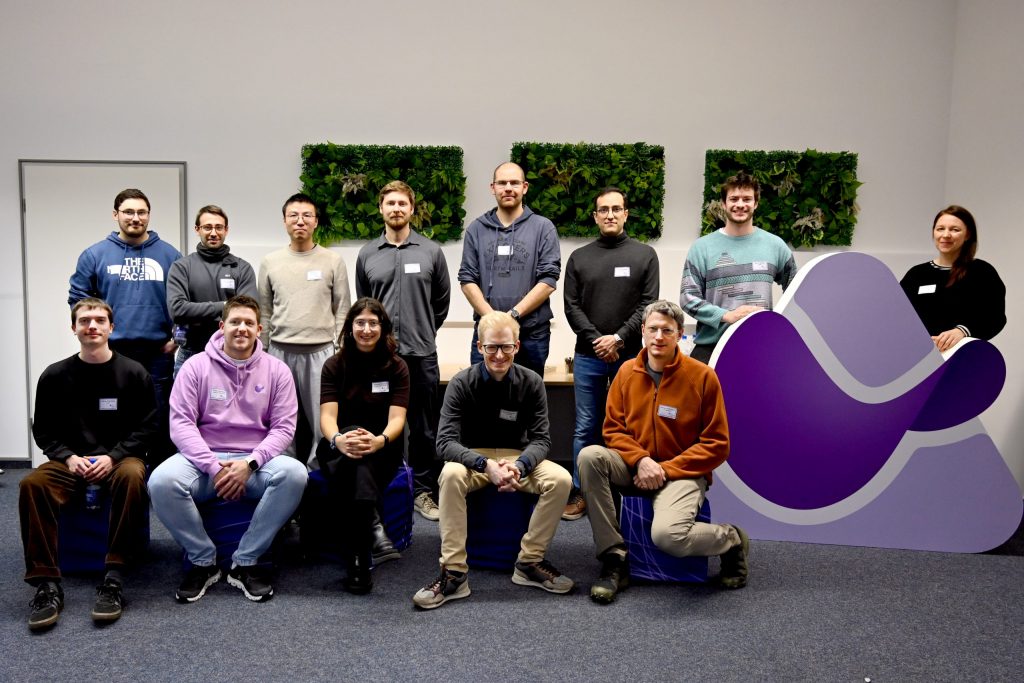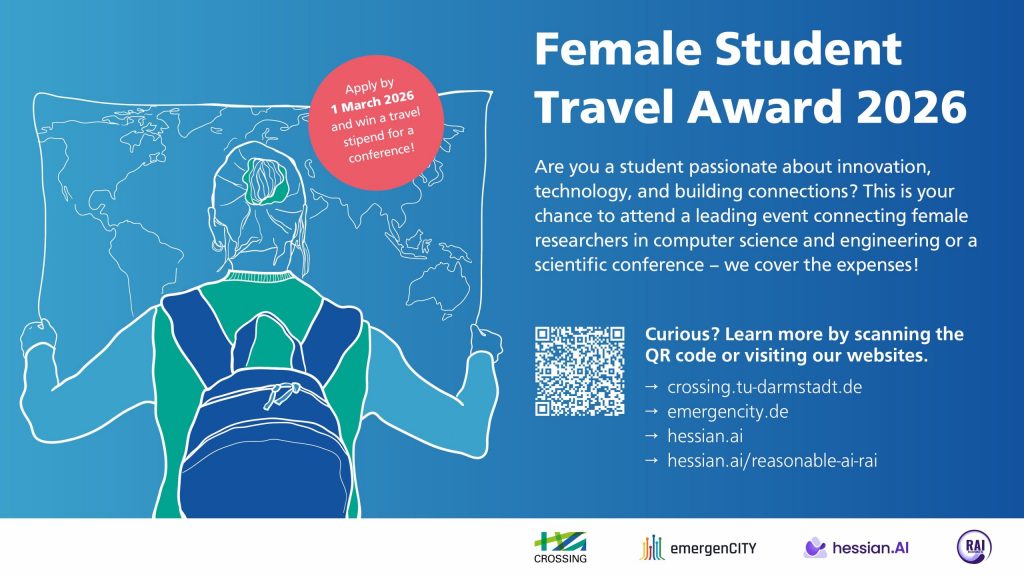
“Don’t Be Boring!” – Meike Neitz on Storytelling, Startup Pitches & AIConnects by hessian.AI
What makes a presentation truly impactful? For Meike Neitz, the answer is clear: storytelling! In this interview, the founder of embassidy, moderator, and startup coach talks about her early love for stories, shares practical pitch tips for founders — and explains how she’s preparing to moderate the networking event AIConnects. One thing quickly becomes clear: if you want to truly connect with people, facts alone won’t cut it — you need a compelling story.

Where does your passion for storytelling come from?
Meike Neitz: “Even as a child, I read a lot and always came home from the library with a huge pile of books, which I would secretly delve into in my bunk bed when my parents thought I was asleep. I think that was the origin of my love of storytelling! The second is that I am always shocked to realize how -sorry- boring and uninspiring lectures, speeches or presentations are. Whether from politicians, established personalities from business and society or startup founders. So I have made it my mission to help all listeners have better presentation moments by teaching speakers how to use storytelling and inspire instead of boring!”
You supported our AI startups at the AI Startup Competition with coaching. What advice did you give them for preparing their pitches?
Meike Neitz: “(Especially for a stage pitch): DON´T BE BORING!“. Go in with a strong performance, because you’ll be convincing in the first ten seconds. For example, start with a story, a question and a strong statement instead of coming on stage and saying “Hello, I’m Meike and I’d like to introduce my company embassidy to you now”.
A second tip: use specific examples or stories to make your business model immediately understandable instead of generalizing – this is what most startups tend to do (“We help medium-sized companies to use AI effectively in their production”). It would be better to say:
”Imagine a traditional, medium-sized company with 300 employees here in Hesse… It is struggling with XYQ problems due to XYQ…. Managing Director Heike Scholz was skeptical about approaching the topic of AI, but we were able to present our solution in a two-week pilot project. The whole team was delighted with the result: we achieved a 30% increase in efficiency in production and thus reduced costs by 25%!….usw.”
The startups take the audience directly into their customers’ world, their challenges, their hesitation in dealing with new technologies, etc. This makes it immediately clear in the pitch who the customer group is and how they benefit from using the technology! Of course, there were others, but with the top two, you can get a lot out of it!”
You will be moderating our AIConnects event. How do you prepare for an event like AIConnects, where the audience is such a diverse mix?
Meike Neitz: “I always do ecosystem research to gain insights into what topics the local startup scene is dealing with – in your case, Darmstadt and the ecosystem in Hesse.
I look at what’s new, where things stand. Then it’s about getting a clear idea of the event’s aim, who is in the audience, and what needs to be communicated.
Finally, of course, I look at who the speakers / startups will be that I can welcome on stage. I then build my moderation guide from everything!”
With your consultancy embassidy, you will work with startup initiatives in Germany and on the African continent. This gives you an insight into very different startup ecosystems.
What do you think are the biggest challenges for startups in African countries?
Meike Neitz: “In my view, the biggest challenges are the problematic financing situation, especially for the very early startup stages, which need to be better financed across the board, for example, through state start-up grants, such as those available in North Rhine-Westphalia and other federal states.
The local market situation is also still a problem: the often poor infrastructure and logistics, especially intercontinental, political and legal instability and corruption.
As far as the start-ups themselves are concerned, there is still a lack of “real” innovation, which in turn is linked to the fact that the level of research at local universities still needs to improve – there is still a lot more to be done here. The entire area of research and development, as well as upstream entrepreneurial education, needs to be heavily invested in over the next few years – and not with money from abroad, but with local funds, both private and state.”
What do you like best about this collaboration with the startups?
Meike Neitz: “That they give their all despite difficult conditions, are prepared to take risks and work on real change. I am currently working with a group of climate tech companies in West Africa and I see their enthusiasm and commitment to the cause every day. It’s a great pleasure to work with them”!


